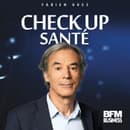Screening tests for breast cancer and colorectal cancer are still experiencing low participation in France, and the Covid-19 pandemic, in the former case, has not helped, according to two studies published Tuesday by Public Health France.
Faced with the most common and most deadly cancer for them, French women between the ages of 50 and 74 are offered, every two years, a clinical breast examination and a mammogram, followed by a second reading by an expert if the first is normal. or a diagnostic check. in case of a suspicious image.
But “France is struggling to reach the European target” of at least 70% participation in screening, says a study published in the SpF weekly epidemiological bulletin.
“Too low compared to European recommendations”
Participation is around 50% and it has been in decline for ten years, with, in addition, the repercussions of the Covid crisis. After rising until 2012 and peaking at around 52%, it fell to 48.5% in 2019. In the context of the pandemic, it fell to 42.6% in 2020, before rising again to 50.6% in 2021.
In addition to the consequences of Covid on access to care, “it is also possible that the underlying downward trend in detection will continue,” the authors of this study note.
Several hypotheses could explain this trend: “doubt about the usefulness of screening”, “consequence of less attractiveness”, “medical desertification”… However, it is difficult to have a complete picture because mammograms are also performed outside of organized screening.
For colorectal cancer, the second leading cause of cancer death in France, screening is based on a fecal occult blood test, offered every two years to French people aged 50 to 74. Since the generalization of the program, “the participation rate is low, around 32%,” says a specific study.
Ultimately, participation rates in colorectal cancer screening do not appear “to have decreased significantly during the pandemic,” but rather “remain too low compared to European recommendations,” the researchers stress.
Source: BFM TV


